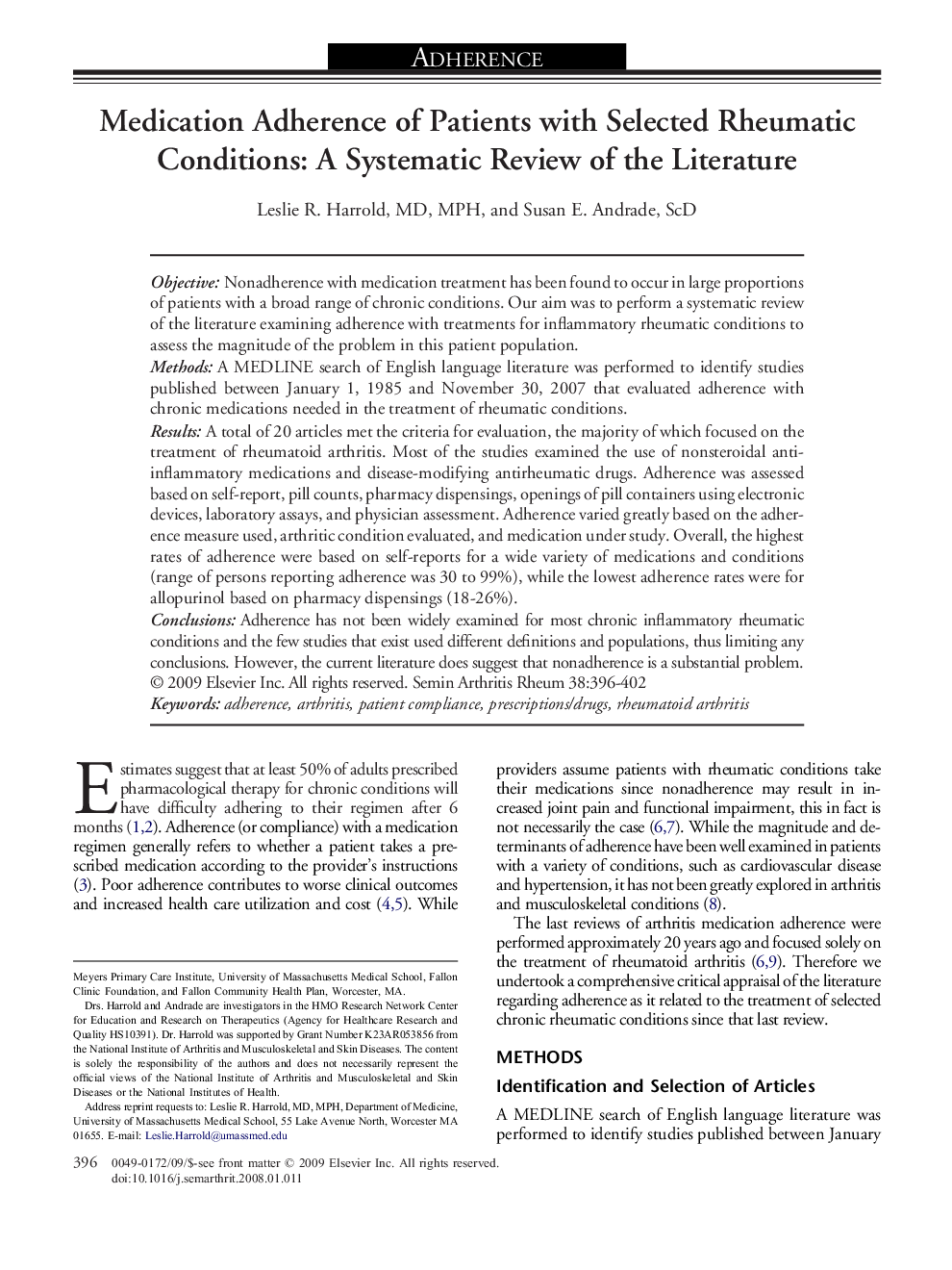| Article ID | Journal | Published Year | Pages | File Type |
|---|---|---|---|---|
| 2771726 | Seminars in Arthritis and Rheumatism | 2009 | 7 Pages |
ObjectiveNonadherence with medication treatment has been found to occur in large proportions of patients with a broad range of chronic conditions. Our aim was to perform a systematic review of the literature examining adherence with treatments for inflammatory rheumatic conditions to assess the magnitude of the problem in this patient population.MethodsA MEDLINE search of English language literature was performed to identify studies published between January 1, 1985 and November 30, 2007 that evaluated adherence with chronic medications needed in the treatment of rheumatic conditions.ResultsA total of 20 articles met the criteria for evaluation, the majority of which focused on the treatment of rheumatoid arthritis. Most of the studies examined the use of nonsteroidal anti-inflammatory medications and disease-modifying antirheumatic drugs. Adherence was assessed based on self-report, pill counts, pharmacy dispensings, openings of pill containers using electronic devices, laboratory assays, and physician assessment. Adherence varied greatly based on the adherence measure used, arthritic condition evaluated, and medication under study. Overall, the highest rates of adherence were based on self-reports for a wide variety of medications and conditions (range of persons reporting adherence was 30 to 99%), while the lowest adherence rates were for allopurinol based on pharmacy dispensings (18-26%).ConclusionsAdherence has not been widely examined for most chronic inflammatory rheumatic conditions and the few studies that exist used different definitions and populations, thus limiting any conclusions. However, the current literature does suggest that nonadherence is a substantial problem.
